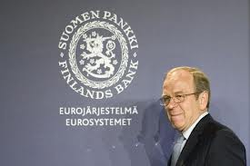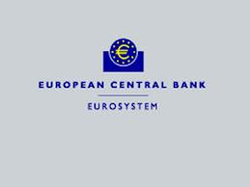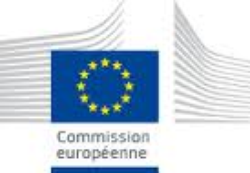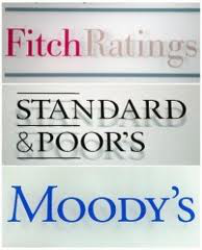Updated: Nov. 20, 2012 (Initial publication: Oct. 5, 2012)
Breaking news

Updated: Sept. 25, 2012 (Initial publication: June 9, 2012)
Sectorial Analysis

TRANSLATED SUMMARIES
ENGLISH
In France, the Minister of Ecology has issued an Order to facilitate the
purchase of electricity generated by wind. The text is being challenged
before the "Conseil d’Etat" (State Council) for illegality, in that it
constitutes state aid. The State Council considers the matter serious
enough to suspend the proceeding and seized the Court of Justice of the
European Union of a preliminary question on 15 May 2012.
FRENCH
En France, le ministre de l’Ecologie a émis une ordonnance afin de faciliter l’achat de l’électricité produite par le vent. Le texte est actuellement contestée devant le «Conseil d’Etat" (Conseil d’Etat) pour cause d’illégalité, en ce qu’elle constitue une aide d’Etat. Le Conseil d’Etat considère que l’affaire suffisamment grave pour suspendre la procédure et saisi la Cour de justice de l’Union européenne d’une question préjudicielle le 15 mai 2012.
Updated: Sept. 25, 2012 (Initial publication: Dec. 5, 2011)
Sectorial Analysis

Translated Summaries
In The Journal of Regulation the summaries’ translation are done by the Editors and not by the authors
ENGLISH
The European Commission issued a reasoned opinion on November 24th, 2011, to France and the Czech Republic demanding that those countries modify their legislation in order to comply with European regulation on renewable energies. If the modifications are not implemented in the upcoming two months, the Commission will open a case before the European Court of Justice.
FRENCH
La Commission européenne a émis un avis motivé le 24 Novembre 2011, concernantla France et la République tchèque, exigeant que ces pays modifient leur législation afin de se conformer à la réglementation européenne sur les énergies renouvelables. Si les modifications ne sont pas mises en œuvre dans les deux prochains mois, la Commission ouvrira une procédure devant la Cour de justice de l’Union européenne
ITALIAN
Il 24 novembre 2011, la Commissione europea ha emesso una raccomandazione con cui richiede alla Francia ed alla Repubblica Ceca di modificare le proprie legislazioni in modo tale da conformarle alla regolamentazione europea in materia di energia rinnovabile. Se le modifiche non saranno introdotte entro i prossimi due mesi, la Commissione adirà la Corte di Giustizia Europea.
....................
Other translations forthcoming.
Updated: Sept. 25, 2012 (Initial publication: June 12, 2011)
Sectorial Analysis

ENGLISH
On May 12, 2011, both Neelie Kroes, the European Commissioner for the digital agenda within the European Commission, and Larry Strickling, Assistant Commissioner for Communications and Information within the United States Department of Commerce, sent a notification to the ICANN, a private association that manages Internet domain names. First of all, they agreed with the principle of self-regulation of Internet domain names by the ICANN. But, they requested a reform of its “governance” to improve its transparency and better take into account public authorities’ recommendations.
Association - Conflict resolution - Domain name - European commission - Internet - Internet Corporation for Assigned Names & Numbers (ICANN) - Memorandum - Power - Private regulator - Regulatory Authority - Self regulation - Soft law - Transparency - United Nations (UN) *
* In The Journal of Regulation, these keywords are done by the Editor and not by the Author.
PORTUGUESE
Informe bibliográfico (Internet): Autoridades europeias e norte-americanas notificaram a ICANN, uma associação privada encarregada da auto-regulação de nomes de domínio na Internet, que ela deve adotar uma governança mais transparente e também adotar as recomendações de estruturas públicas.
Em 12 de maio de 2011, tanto Neelie Kroes, o Comissário Europeu para a agenda digital dentro da Comissão Europeia, quanto Larry Strickling, Comissário Assistente para Comunicações e Informação dentro do Departamento de Comércio dos Estados Unidos da América, enviaram uma notificação para a ICANN, uma associação privada que gerencia nomes de domínio na internet. Em primeiro lugar, eles concordaram com o princípio da auto-regulação dos nomes de domínio na Internet pela ICANN. No entanto, eles solicitaram uma reforma em sua governança para melhorar sua transparência e melhor levar em consideração as recomendações de autoridades públicas.
Associação – Resolução de conflitos – Nome de domínio – Comissão Europeia – Internet - Internet Corporation for Assigned Names & Numbers (ICANN) – Memorandum – Poder – Regulação privada – Autoridade de regulação – Auto-regulação – Soft law – Transparência – Nações Unidas (ONU)*
* No Journal of Regulation, as palavras-chave são fornecidas pelo Diretor, e não pelo Autor.
ITALIAN
Relazione bibliografica (Internet): Le autorità europee e nord americane hanno indicato che l’ICANN, una società privata che ha lo scopo di auto-regolare i nomi a dominio di internet, dovrà aumentare la trasparenza della gestione ed adottare le raccomandazioni delle strutture pubbliche
Il 12 maggio 2011, Neelie Kroes, Commissario europeo per l’agenda digitale della Commissione europea, e Larry Strickling, Commissario assistente per le comunicazioni e l’informazione del Dipartimento del Commercio degli Stati Uniti, hanno entrambi dichiarato che l’ICANN, una società privata che gestisce i nomi a dominio di Internet, deve riformare il proprio sistema di gestione migliorando la sua trasparenza e deve prendere in debita considerazione le raccomandazioni provenienti dalle autorità pubbliche.
Associazione - Autorità di regolazione - Autorità privata di regolazione - Auto-regolazione - Commissione Europea - Internet - Internet Corporation for Assigned Names & Numbers (ICANN) - Memorandum - Nazioni Unite (ONU) - Nomi di dominio - Potere - Risoluzione di controversie - Soft law - Transparenza *
* In The Journal of Regulation, le parole chiave sono responsabilità dell’Editore e non dall’Autore.
Other translations fortcoming.
Updated: Sept. 25, 2012 (Initial publication: Dec. 12, 2011)
Sectorial Analysis

Translated Summaries
In The Journal of Regulation the summaries’ translation are done by the Editors and not by the authors
ENGLISH
On July 28, 2011, the European Court of Justice rejected an appeal by an Italian digital terrestrial broadcaster against a ruling of the European General Court, which had also rejected an appeal against the European Commission’s condemnation of Italy for having subsidized the purchase or rental by consumers of equipment for the reception of digital terrestrial television broadcast signals, since this was an indirect provision of state aid to the broadcasters.
FRENCH
Le 28 juillet 2011, la Cour de Justice de l’Union Européenne a rejeté un appel interjeté par un radiodiffuseur italienne numérique terrestre contre une décision de la Cour européenne de première instance, qui avait également rejeté un recours contre la condamnation prononcée par la Commission européenne de l’Italie pour avoir subventionné l’achat ou la location par le consommateurs d’équipements pour la réception de télévision numérique terrestre des signaux de télédiffusion, puisque ce fut une prestation indirecte, constitutive d’aides d’Etat au bénéfice des radiodiffuseurs.
SPANISH
El 28 de julio de 2011, el Tribunal Europeo de Justicia rechazó una apelación de un emisor italiano digital terrestre contra una resolución del Parlamento Europeo y del Tribunal General, que había rechazado también un recurso de apelación contra la condena de la Comisión Europea de Italia por haber subvencionado la compra o el alquiler de los consumidores de los equipos para la recepción de señales digitales terrestres de televisión, ya que esta era una disposición indirecta de las ayudas estatales a las emisoras.
DEUTSCH
Am 28. Juli 2011 hat der Gerichtshof der Europäischen Union eine Beschwerde von einem italienischen digitalen terrestrischen Sender zurückgewiesen gegen eine Entscheidung des Europäischen Gerichts Erster Instanz, die auch abgelehnt hatte Einspruch gegen der Überzeugung, in der Europäischen Kommission Italien nach dem Kauf oder Leasing von der Consumer-Geräten zum digitalen terrestrischen Fernsehsignale empfangen subventioniert haben, da es ein indirekter Nutzen war, um eine staatliche Beihilfe für Broadcaster.
ITALIAN
Il 28 luglio 2011, la Corte di Giustizia Europea ha respinto un appello di emittente italiana di digitale terrestre promosso contro una decisione della Corte generale europea. Anche tale Corte aveva respinto l’appello promosso contro la decisione della condanna dello Stato italiano per aver sovvenzionato l’acquisto o l’affitto da parte dei consumatori di un decoder, in quanto costituirebbe un aiuto statale indiretto alle emittenti.
.................
Other translations forthcoming.
Updated: Sept. 19, 2012 (Initial publication: May 25, 2012)
Sectorial Analysis
Main information
The Italian upper administrative court (“Consiglio di Stato”) ruled that the Autorità per le garanzie nelle comunicazioni (“AgCom” – the Italian Regulatory Authority for electronic communications) is not bound to provide a rigorous justification when issuing decisions not compliant with European Commission’s comments. This judgment is of general interest since, on the basis of a formalistic reasoning, it does not pay adequate attention to the role played by the European Commission in electronic communications’ regulatory proceedings at national level. Under the European regulatory framework (and the multilevel governance system established therein), comments from the European Commission are the main pillar of the horizontal coordination system between the European level and the national level, aimed at creating a competitive common market for electronic communications.
Updated: Sept. 19, 2012 (Initial publication: July 12, 2012)
Sectorial Analysis

Translated summaries
ENGLISH
France and Italy had subsidized rail alpine highway, but the project was behind schedule. Thus, an prolongation of governments support was necessary. The European Commission admittedit in its decision of 11 June 2012, because States are committed the concession will be effective on June 30, 2013 and mostly because this mode of transport will be an alternative to transporting goods.
FRENCH
La France et l’Italie avaient subventionné l’autoroute ferroviaire alpine, mais le projet a pris du retard. Ainsi, une prolongation du soutien des gouvernements était nécessaire. La Commission européenne l'a admis dans sa décision du 11 Juin 2012, parce que les États se sont engagés et que la concession sera effective le 30 juin, 2013, surtout parce que ce mode de transport sera une alternative au transport routiers par camions des marchandises.
Updated: Sept. 17, 2012 (Initial publication: Sept. 13, 2012)
Breaking news

Updated: Sept. 17, 2012 (Initial publication: Sept. 12, 2012)
Breaking news

Updated: Sept. 17, 2012 (Initial publication: Sept. 11, 2012)
Breaking news

Updated: Sept. 17, 2012 (Initial publication: Sept. 17, 2012)
Breaking news

Updated: Sept. 10, 2012 (Initial publication: June 8, 2012)
Sectorial Analysis

Updated: Sept. 10, 2012 (Initial publication: June 2, 2012)
Sectorial Analysis

Updated: Sept. 10, 2012 (Initial publication: May 31, 2012)
Sectorial Analysis

Updated: July 23, 2012 (Initial publication: July 16, 2012)
Breaking news

Updated: July 23, 2012 (Initial publication: July 8, 2012)
Breaking news

Updated: July 16, 2012 (Initial publication: July 12, 2012)
Breaking news

Updated: July 16, 2012 (Initial publication: July 4, 2012)
Breaking news

Updated: July 13, 2012 (Initial publication: July 13, 2012)
Contributions

Updated: July 9, 2012 (Initial publication: July 1, 2012)
Breaking news

Updated: July 9, 2012 (Initial publication: June 29, 2012)
Breaking news

Updated: June 20, 2012 (Initial publication: June 14, 2012)
Breaking news

Updated: June 19, 2012 (Initial publication: June 12, 2012)
Breaking news

Updated: June 18, 2012 (Initial publication: June 10, 2012)
Breaking news

Updated: June 12, 2012 (Initial publication: June 11, 2012)
Contributions

